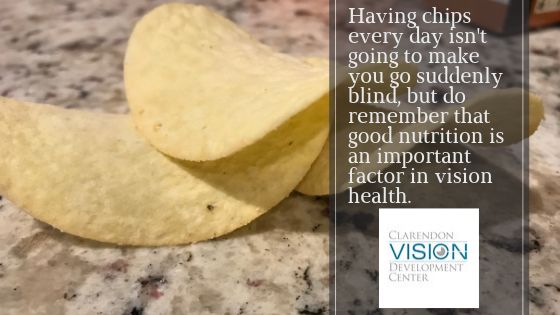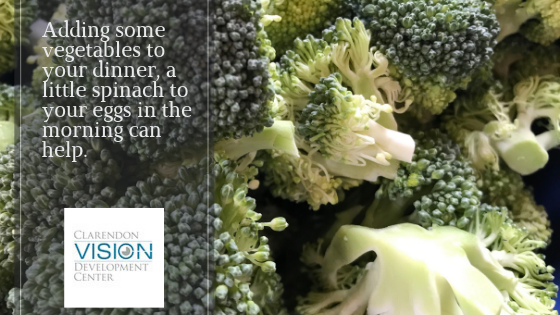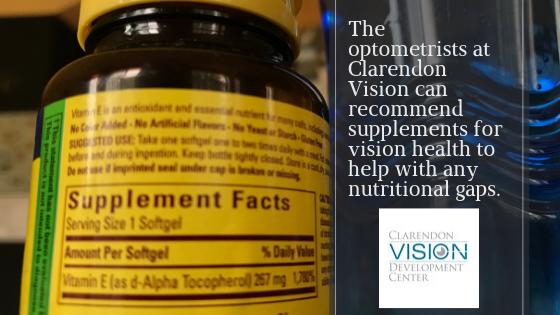Good Nutrition and Eye Health
There’s a news item getting a lot of attention right now detailing a case study of a teen boy who went blind after years of consuming a very low quality diet. Did you hear about this and start adding extra vegetables to all of your family’s meals as a result?
You’re not wrong to want to emphasize a high-quality diet with a variety of foods! Recent research has confirmed what doctors have been saying for years, a high-quality diet can have a variety of positive health benefits. Diets rich in fruits and vegetables tend to provide a range of vitamins and minerals that have been shown to protect against vision-impacting issues like cataracts, age-related macular degeneration, and diabetic neuropathy.
The case study in the news is getting a lot of attention, but it bears mentioning that the young person impacted had other health challenges related to nutrition, and when the news reports state that this young person ate an extremely limited diet, they do mean extremely limited. Typically, nutritional optic neuropathy, the condition blamed for the young person’s blindness, is reversible, but this young person’s extreme diet led to a vision loss that is at the moment considered irreversible. The investigators reported on this case in an effort to inform the public about the role nutrition plays in vision.
Dr. Amber Cumings from Clarendon Vision has this to say about the case study, “It’s good to have the awareness of the importance of a good diet, but since this is just one individual impacted in one very specific scenario, it’s not cause for great alarm for every person. Even if you happen to have some chips every day, you’re not going to go suddenly blind because of it. We could all stand to improve our diet, though.”

So what kinds of nutrients do our bodies need to fuel our visual system? Recent research has identified several categories of nutrients that help our vision. Vitamin C and Vitamin E are considered essential for good vision. These nutrients are found in citrus fruits, nuts and nut butters, sweet potatoes, and are often used in fortified cereals and juices.
Two carotenoids, lutein and zeaxanthin, which are both antioxidants, are also essential to eye health and help our eyes filter blue light. We’ve talked about blue light in recent articles. The way most Americans use backlit screens to do our work, stay connected with friends and family, and for recreation means we should all be paying attention to these essential nutrients. Lutein and zeaxanthin can be found in dark leafy greens as well as colorful vegetables like orange peppers, corn, and tangerines.
“Your body is best at naturally absorbing vitamins from your diet. Adding more vegetables to your dinner, a little spinach to your eggs in the morning can help.” Dr. Amber Cumings said.

The National Cancer Institute and the U.S. Department of Agriculture recommend eating five servings of fruit and vegetables a day. When consuming a diet rich in fruits and vegetables, research subjects were found to have adequate amounts of these essential nutrients, including lutein and zeaxanthin in their systems.
However, most Americans fall short of meeting the 5 servings of fruit and vegetables a day guidelines. Supplements are one way to combat this shortfall, while still working toward increasing the number of fruits and vegetables we eat. The optometrists at Clarendon Vision can recommend supplements containing these essential eye nutrients.

Be sure to talk to your optometrist about this at your next eye appointment. Dr. Cumings and Dr. Spokas at Clarendon Vision also want to remind their patients and the community that annual comprehensive eye exams help identify any vision challenges or changes before they become severe, so be sure to schedule your next eye exam soon.



